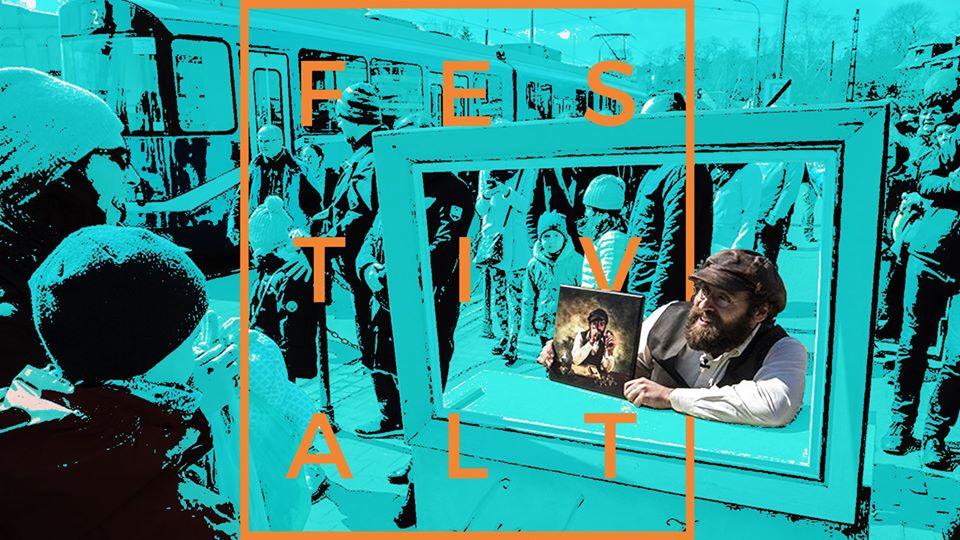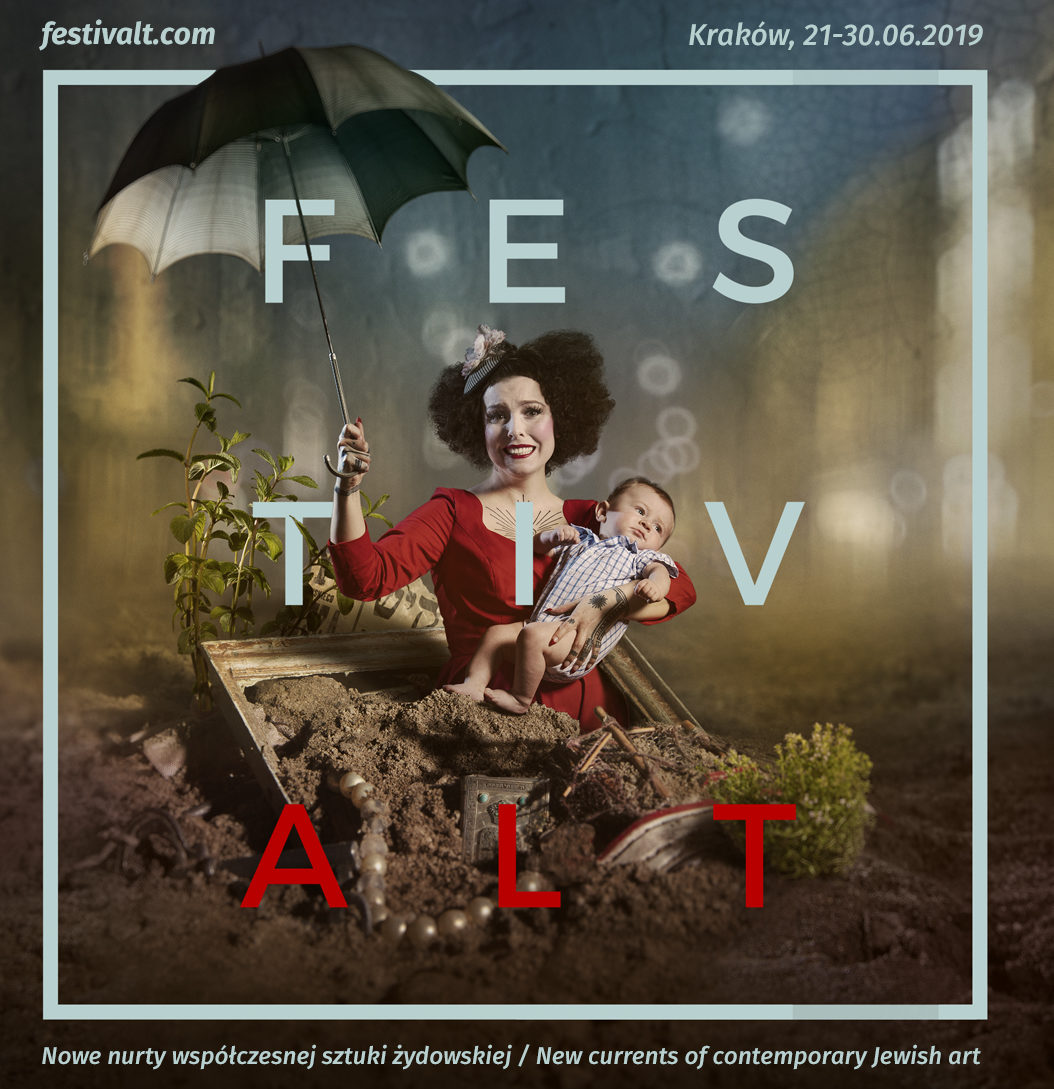
The ongoing COVID-19 crisis has already caused thousands upon thousands of events, celebrations, and festivals to be postponed or cancelled, including the annual Emaus Easter market, infamous for its sale of images of Jews for luck. We didn’t think however that it was a good enough reason to pause discussion about this phenomenon, which we cultivate every year by setting up a stall at the Emaus Easter market.
On Monday, April 13, the Lucky Jew took his wares online where for 6 hours anyone could buy mugs, canvases, magnets, and iPhone cases, or simply stop by for some conversation. The tradition of selling images of Jews at Kraków’s Easter market goes back as far as the 1800s, where these figurines were sold alongside carvings of other Polish archetypes—peasants, Highlanders, priests, etc. In the late 1970s, new images of Old Country Jews appeared, showing them counting gold coins. This tradition, thought to bring the buyer financial luck, continues to this day. For some people, these good-luck charms also serve as remembrances of Poland’s pre-war Jews; for others, they are simply anti-Semitic caricatures. The debate about these objects and how they should be treated is very much alive. Just last month, a leading Kraków politician submitted an appeal to the mayor of the city to investigate how these figurines perpetuate anti-Semitic stereotypes. In December 2019, the OBI chain of supermarkets removed from sale images of Jews with coins after a wave of public pressure.
FestivALT, a Jewish arts collective based in Kraków, has long engaged in a public discussion about this tradition pulling passersby and customers into a difficult conversation about stereotypes and tradition. This time was no different. Six straight hours with hundreds of participants and viewers, including Krakow MP Bogusław Sonik, Barbara Kirschenblatt-Gimblett, Chief Curator of the Core Exhibition of the POLIN Museum of the History of Polish Jews in Warsaw or Shana Penn, writer, lecturer and Executive Director of Taube Philanthropies.
Thank you so much to our co-hosts, STROBOSKOP and SAM Rozwit
for their support and to everyone who came by to “buy our wares.” We weren’t sure what to expect or what it would mean to bring this site-specific work to the World Wide Web, and we are so grateful for everyone who stopped by, asked difficult questions, took part in the conversations and debate, and maybe even took home a little luck.
If you missed, don’t worry, you can still see the performative conversation here.
